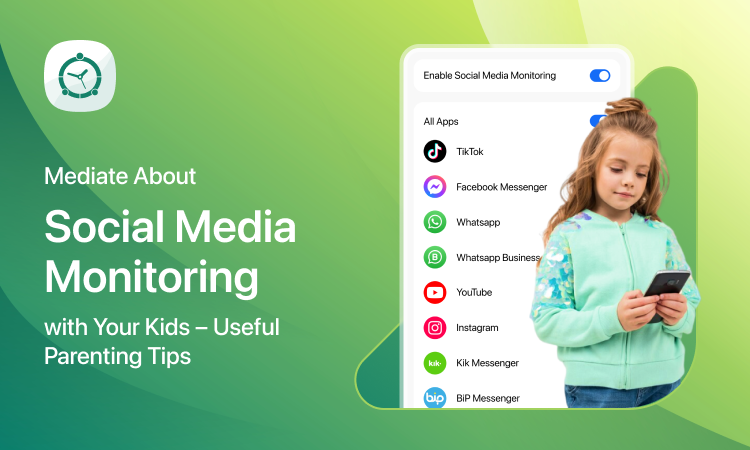
Scamming isn’t a new concept at all. People have been trying to take advantage of others’ innocence to get their money for ages. Only now, scammers have also adapted to modern society and the internet. They set up shop on social media platforms because it provides them with a target-rich pool of victims. Social media scams are becoming more common nowadays because youngsters are a common target of such scammers. Why? Let’s find out.
What Makes Kids and Teens an Easier Target?
Kids and teens are particularly susceptible to such scams compared to adults. The reason? While adults can spot the red flags (like asking for personal information), kids lack that foresight, which makes them an easier target. Kids and teens are more trusting and open toward others and rarely suspect them of malicious intent. Therefore, it is up to the parents to ensure their kids’ digital safety by educating and protecting them against these scams.
Types of Social Media Scams
Let’s begin by learning the various types of social media scams that exists nowadays.
- Giveaways & Fake Contests
Many influencers, celebrities, and legitimate brands hold contests and giveaways on social media to encourage their customers and users. However, scammers take advantage of such schemes and often take customers’ info (from comments and tags) to scam them out of money or personal information.
- Impersonation
Scammers may pose as a celebrity or an influencer that kids follow/like. Or, they may create fake accounts and pose as a close friend to get their targets to trust them. Beware of friends who contact you out of the blue to ask for financial help.
- Phishing Attacks
Phishing is another common form of social media scam. Your kids may receive an image or video file that requires them to log into their social media accounts. If they log in using that link, the account is no longer theirs to control. It is critical to investigate and validate the source of the links before clicking on them. They often contain malware that helps hackers take over your accounts.
- Easy Money Schemes
Quick/easy money-making schemes have been around for decades. Their tune is the same, but they may sing it differently now. They post alluring strategies and messages saying, “join our programs and start making money instantly!” The results are the same. They take your kids’ personal info, money, or both!
- Sugar Daddy/Online Grooming
Lastly, sexual predators target kids by telling them they will get paid for providing their company for short periods. Most Sugar Daddy schemes entail sexual favors under the promise of gifts and allowances, which normalizes online grooming for kids.
Ways to Protect Kids Against Such Scams
Parents must beware of such messages and monitor kids’ digital activities to keep them safe. Here are a few effective tips to help you get started!
- Teach Kids to Look Out for Reg Flags
Parents must talk to kids openly about social media scams. It helps if you show them real-world examples as it allows them to understand the devastating consequences of taking actions without heeding proper caution. Teach them to question the source, and look for anything that looks out of the ordinary before clicking on links or responding to strangers.
- Foster Trust with Kids & Discuss Internet Activity
Talk to your kids about maintaining healthy internet activity. Establish rules around what constitutes indulging in risky digital behavior, such as oversharing personal/financial information. You don’t need to pry into every single detail, but make it a norm to check in on kids’ internet activity.
- Limit Digital Interaction with Strangers
Teach kids to be cautious of strangers online. While it is good to have an open and accepting mindset, befriending strangers right away without checking their legitimacy is foolish. Therefore, help kids set up parameters for accepting new friend requests to avoid becoming a victim of social media scams.
Safeguard Kids’ Digital Lives with FamilyTime

A rather easy way to safeguard kids’ digital lives from social media predators and scammers is by monitoring their online behavior and internet use. It allows parents to catch the red flags that kids may have missed otherwise.
However, monitoring kids’ digital activity can be daunting without the help of a parental control app like FamilyTime. Parents also need to consider kids’ privacy since they cannot check their phones themselves to look for potential threats. That is where FamilyTime can help!
It offers several impressive features, such as YouTube & TikTok Monitoring, Internet Filters, Web History, App Blocker, Call & Text Monitoring, and more. These features can help limit kids’ exposure to such scams. Parents can set up these features to receive alerts if kids receive strange requests/messages or if they display unusual behavior patterns. It can help you protect kids against phishing attacks, sexting, explicit content, and so much more.
You can try FamilyTime for free by opting for its 3-day free trial to witness its efficacy to protect kids against social media scams for yourself. Explore its website to get started!







